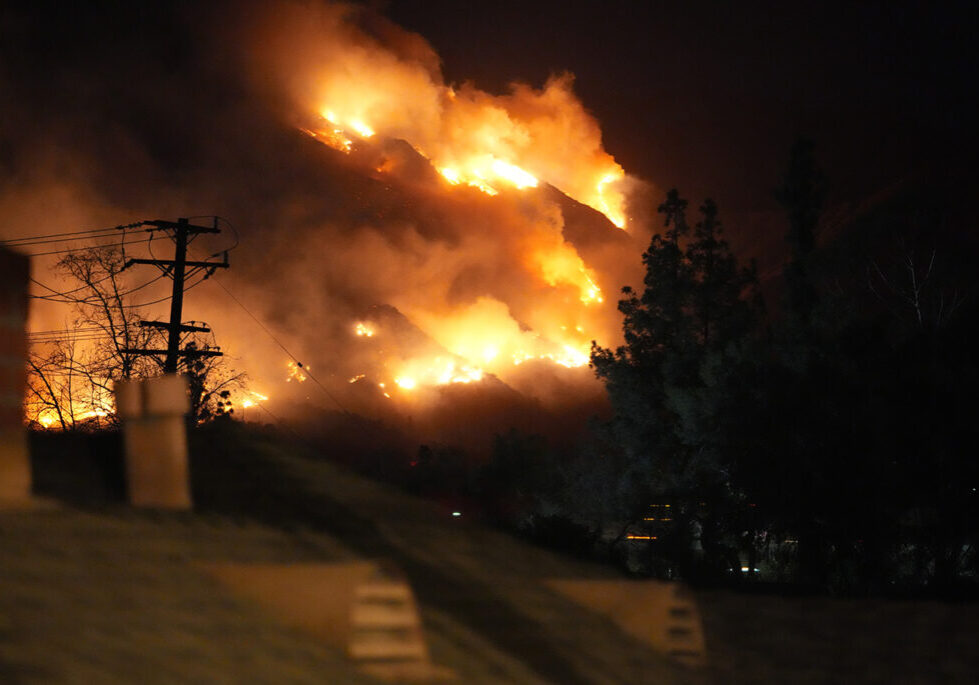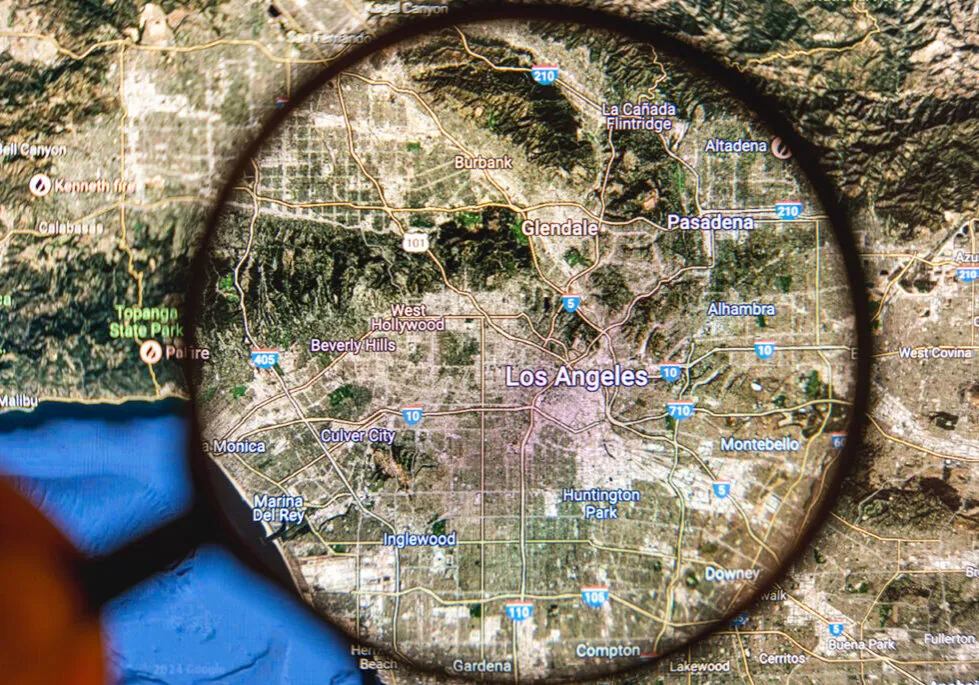The devastating impact of fires and explosions extends far beyond the initial incident. In the complex aftermath of these catastrophic events, taking informed legal steps with a qualified fire injury attorney can make a significant difference in addressing medical costs, property damage claims, and other serious consequences.
Whether it’s an industrial accident that rocks an entire neighborhood, a gas line explosion that destroys homes, or a workplace fire involving industrial safety violations, the impact can be overwhelming. But victims have legal rights and protections under California personal injury law.
Two recent cases highlight why experienced explosion accident attorneys are needed to help you navigate these types of complex claims:
Recent Fire and Explosion Cases Show Widespread Impact
The Louisville Plant Explosion (November 2024)
What Happened: A catastrophic industrial plant accident rocked the Givaudan Flavors Corporation in Louisville, Kentucky, when a cooking vessel overheated and exploded. The AP reports the incident raised questions about workplace safety violations, as employees had previously reported concerns about the vessel’s overheating issues, yet operations continued without corrective action.
Impact: The workplace explosion claimed the lives of two workers and sent shockwaves through the surrounding neighborhood. The blast’s devastating force propelled debris into residential areas, causing extensive structural damage to nearby homes. Residents discovered shattered windows, damaged foundations, and cracked drywall throughout their properties. The percussion from the explosion was so powerful it knocked pictures off walls in homes across the neighborhood.
Legal Actions: The incident has spawned several explosion injury lawsuits seeking compensation for various damages. Neighboring residents have filed claims for both property damage and emotional trauma suffered during the incident. A particularly notable case involves a food delivery driver who was in the area during the explosion; the blast triggered his military-related PTSD from service in Iraq. The company has publicly acknowledged its liability for damages to the surrounding neighborhood.
The Santa Maria Gas Line Incident (August 2023)
Initial Event: What began as a routine emergency response to a kitchen fire set in motion a chain of events leading to disaster. Firefighters responded to a cooking fire at a residential property, successfully extinguishing the stove fire. In the process of securing the scene, they moved the stove outside but allegedly left a gas line unsecured.
Subsequent Disaster: Three weeks after the initial incident, a massive gas explosion tore through the property. The blast completely destroyed multiple homes in the vicinity and caused severe burn injuries to a 90-year-old resident. According to Channel 12, the time gap between the initial fire and the explosion would prove crucial in the investigation of responsibility.
Legal Implications: This case exemplifies the complex web of liability that can arise from such incidents. The lawsuit names multiple defendants, including the City of Santa Maria, Southern California Gas Company, various equipment manufacturers, and property owners. Each party potentially bears some responsibility for the events that led to the explosion, demonstrating why thorough investigation and experienced legal representation are so important in such cases.
Key California Laws Affecting Fire and Explosion Cases
Fire and explosion incidents often involve complex legal considerations under California law. Whether the incident occurs at home, in the workplace, or affects an entire neighborhood, various state laws and regulations may apply to your case. Understanding these basic legal principles can help you protect your rights and pursue fair compensation. Here are some key examples of laws and regulations that may affect your case:
- Time Limits: You generally have two years to file a personal injury lawsuit, but only six months if claiming against a government entity. Don’t wait — these deadlines tend to strict.
- Strict Liability: Companies handling dangerous materials can be held responsible for damages regardless of fault. This applies to industrial facilities, gas companies, and others dealing with hazardous substances.
- Shared Fault: California’s “pure comparative negligence” system means multiple parties can share responsibility for an accident. You can still recover damages even if partially at fault, though your compensation may be reduced.
- Safety Regulations: Violations of Cal/OSHA workplace rules, fire codes, or utility commission regulations can strengthen your case by helping prove negligence.
- Available Damages: California law allows recovery of both economic losses (medical bills, lost wages, property damage) and non-economic damages (pain and suffering, emotional distress) with no general cap on compensation.
- Utility Company Requirements: Gas companies must follow strict safety protocols, including regular inspections and prompt response to reported issues. Failure to meet these obligations can establish liability.
These are just some examples of the laws that may apply to your situation. Every case is unique and may involve additional regulations and legal principles depending on the specific circumstances.
What To Do If You’re Affected by a Fire or Explosion Accident
If you find yourself impacted by a fire or explosion incident, taking prompt action is crucial to protect your rights and potential claims:
Immediate Steps for Fire and Explosion Victims
- Ensure your safety and seek medical attention for any injuries, even if they seem minor
- Document everything:
- Take photos and videos of all damage
- Keep medical records and receipts
- Record witness contact information
- Save all communication with insurance companies and authorities
Legal Considerations for Explosion Injury Claims
- Don’t sign any documents or accept settlements without legal review
- Preserve evidence: Don’t dispose of damaged items until properly documented
- File necessary reports with fire department, police, or workplace safety regulators
- Contact an experienced personal injury attorney who can:
- Identify all potentially responsible parties
- Handle complex insurance issues
- Secure expert investigations
- Protect your rights during official investigations
Understanding Your Rights to Accident Compensation
As these recent cases demonstrate, explosion victims may be entitled to various types of compensation, such as:
- Property damage repair and replacement costs
- Medical expenses (current and future)
- Lost wages and earning capacity
- Temporary housing costs
- Pain and suffering
- Emotional distress and trauma
- Loss of quality of life
Finding the Right Fire and Explosion Attorney
Fire and explosion cases often involve multiple responsible parties and complex chains of causation. An experienced personal injury attorney can, for example:
- Navigate complicated liability issues
- Coordinate with investigators and experts
- Handle insurance company negotiations
- Ensure all damages are properly documented
- Protect your rights throughout the legal process
Get Experienced Legal Help Today
If you’ve been affected by a fire or explosion incident, contact the experienced trial attorneys at Penney & Associates. Led by nationally renowned personal injury attorney Frederick W. Penney, our firm has a proven track record of success in securing fair compensation for victims of catastrophic incidents.
With offices strategically located across California, we ensure expert legal representation is always within reach:
Main Offices: Chico, Los Angeles, Rocklin, Roseville, Sacramento, Santa Clara
Satellite Offices: Bakersfield, Corning, Fairfield, Irvine, Red Bluff, Redding, Riverside, San Diego, San Francisco, Santa Monica, Santa Rosa, Stockton
Don’t wait to protect your rights. Schedule your free consultation today by calling (800) 616-4529 or contact us out via our website.
Read More
Product Liability Claims in California: Pursuing Compensation
Why Hiring the Right Lawyer Saves Money in the Face of Inflation
Holiday Party Accidents: Who’s Responsible for Injuries



